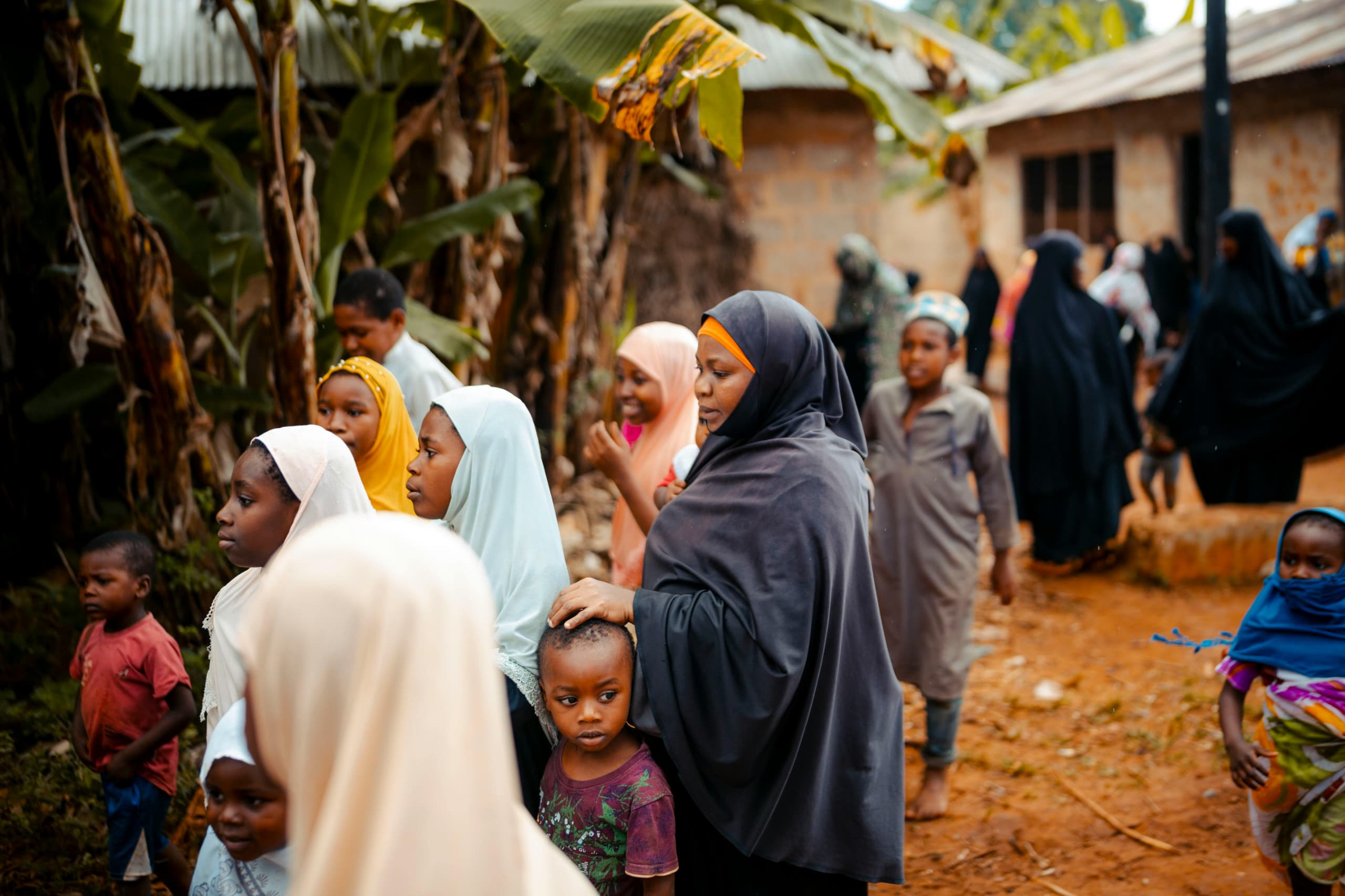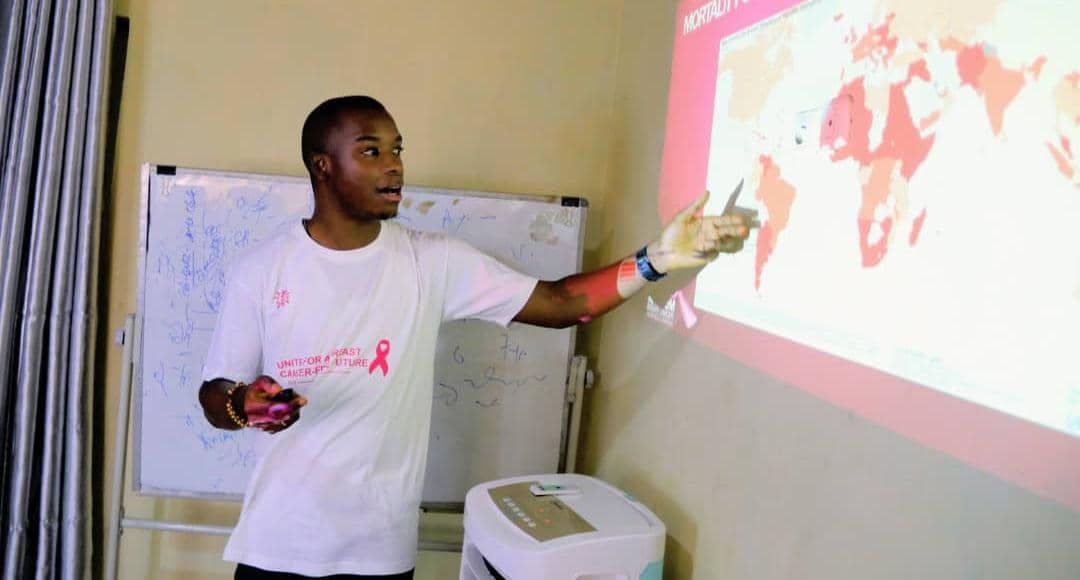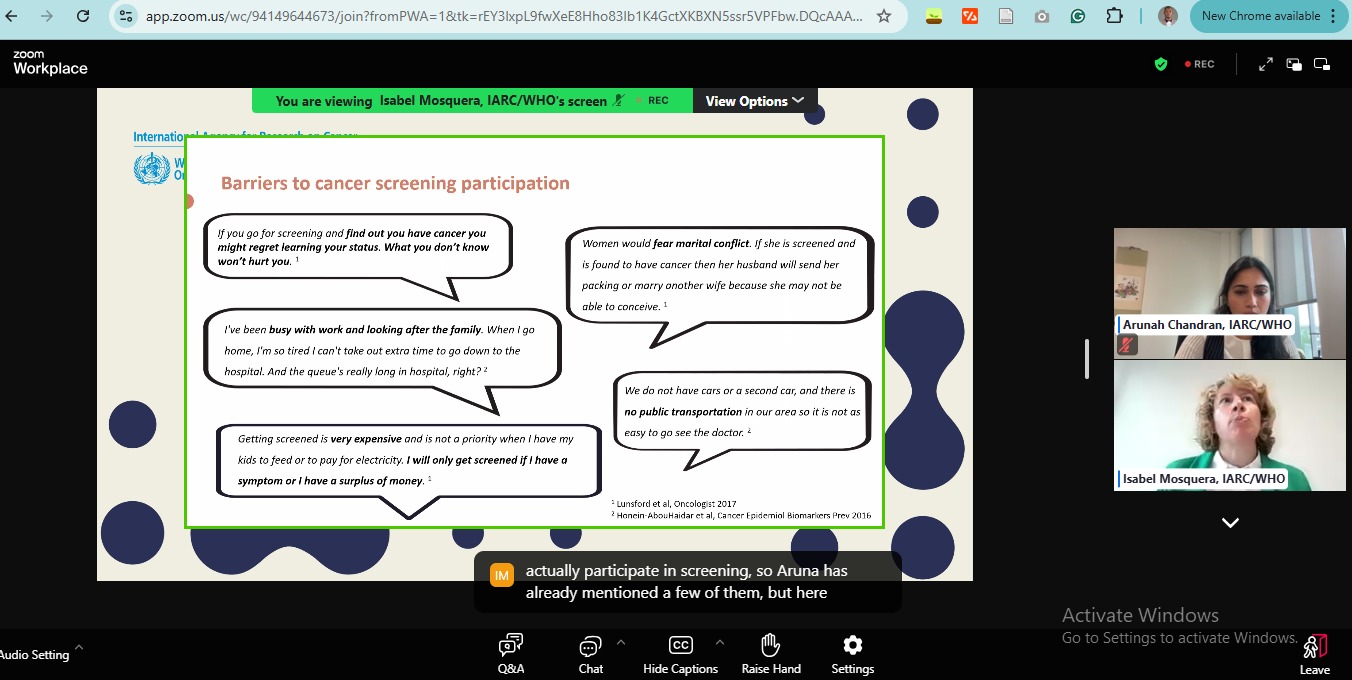
In Cameroon, cancer is a growing crisis. Every year, thousands of lives are affected by this disease, and sadly, many people don’t get help until it’s too late. According to the Global Cancer Observatory (GLOBOCAN 2022), Cameroon had 19564 new cases, with over 12,789 deaths. But this doesn’t have to be our story. Over the months, we’ve had the chance to learn from national plans, global research forums, and practical mentorship, all of which have shown us that a brighter future is possible when we work together.

The experience began with a deep look into the National Strategic Plan for Prevention and Cancer Control (2020–2024). This plan, written by our country’s health leaders, paints a clear picture of the problem: many patients in Cameroon, especially children with cancers like lymphoma and leukemia, arrive at hospitals when the disease is already very advanced. 90% of cancer cases generally begin treatment at later stages, and about one (1) in four (4) die soon after. The Northwest region of Cameroon has the highest number of suspected cases of cancers ( breast, cervix, and prostate cancers) per region according to DHIS (District Health Information Software 2018). That is why the plan’s main goal is to reduce cancer sickness and death by at least 10%. To do this, the plan encourages healthier lifestyles, such as eating well, exercising, and avoiding tobacco and alcohol.
It also pushes for better vaccines, such as those for HPV, Hepatitis B, and HBV, and improved screening so that cancer can be found earlier when it’s easier to treat. Hospitals need more trained staff and equipment, and care must be brought closer to where people live, especially in rural areas. Most importantly, the government wants to improve coordination, so that health systems work smoothly and everyone rich or poor can get the care they need. The plan also reveals some painful truths. In 2020, the average life expectancy in Cameroon was just 56.3 years, and the country ranked 153 out of 188: In Cameroon, Infectious risk alone is attributable to 5191, that is 33.6% of cancers diagnosed each year. Other risk factors examined are smoking, alcoholism, and obesity.

However, common cancers like breast, cervical, and liver cancer can be prevented or treated if found early, which makes awareness and access even more urgent. The next part of our learning came through a webinar hosted by the International Agency for Research on Cancer (IARC). This session helped us see how countries around the world are fighting cancer in smart and fairways. Dr. Partha Basu and his team introduced us to tools that make sure care is not only available but actually works for everyone, even those in poor or hard-to-reach areas. One powerful idea they shared was the Tanahashi model, which helps track how well health services reach people from whether care exists, to whether it is acceptable, reachable, and effective. Other programs like ACCI in India and PRAISE-U in Europe gave examples of real, working systems that other countries like Cameroon can learn from.
In all this, we are humbled to have learned and I’m looking forward to applying the concepts through community-centered efforts with the PBOHI team, we’ve been studying gaps in how cancer care is delivered in Cameroon and look forward to suggesting practical, community-based improvements. we’ve learned to think more like a strategist. How do we make services work better, for more people, in a sustainable way?
Most importantly, we’ve learned that progress depends on people, on communities working together, on youth stepping forward, on leaders listening, and on everyone being counted. Models like PROGRESS-Plus help us remember that things like where someone lives, their gender, their education, or how much money they have should never decide whether they survive a disease.
In conclusion, while Cameroon still faces a heavy cancer burden, we believe more than ever that change is not only possible, it’s already starting. Through teamwork, innovation, and empowered youth voices, we can rewrite the story of cancer care in our country. we proud to be part of that story.
Thank you.
@Peter Bryan and stephanie Nji

